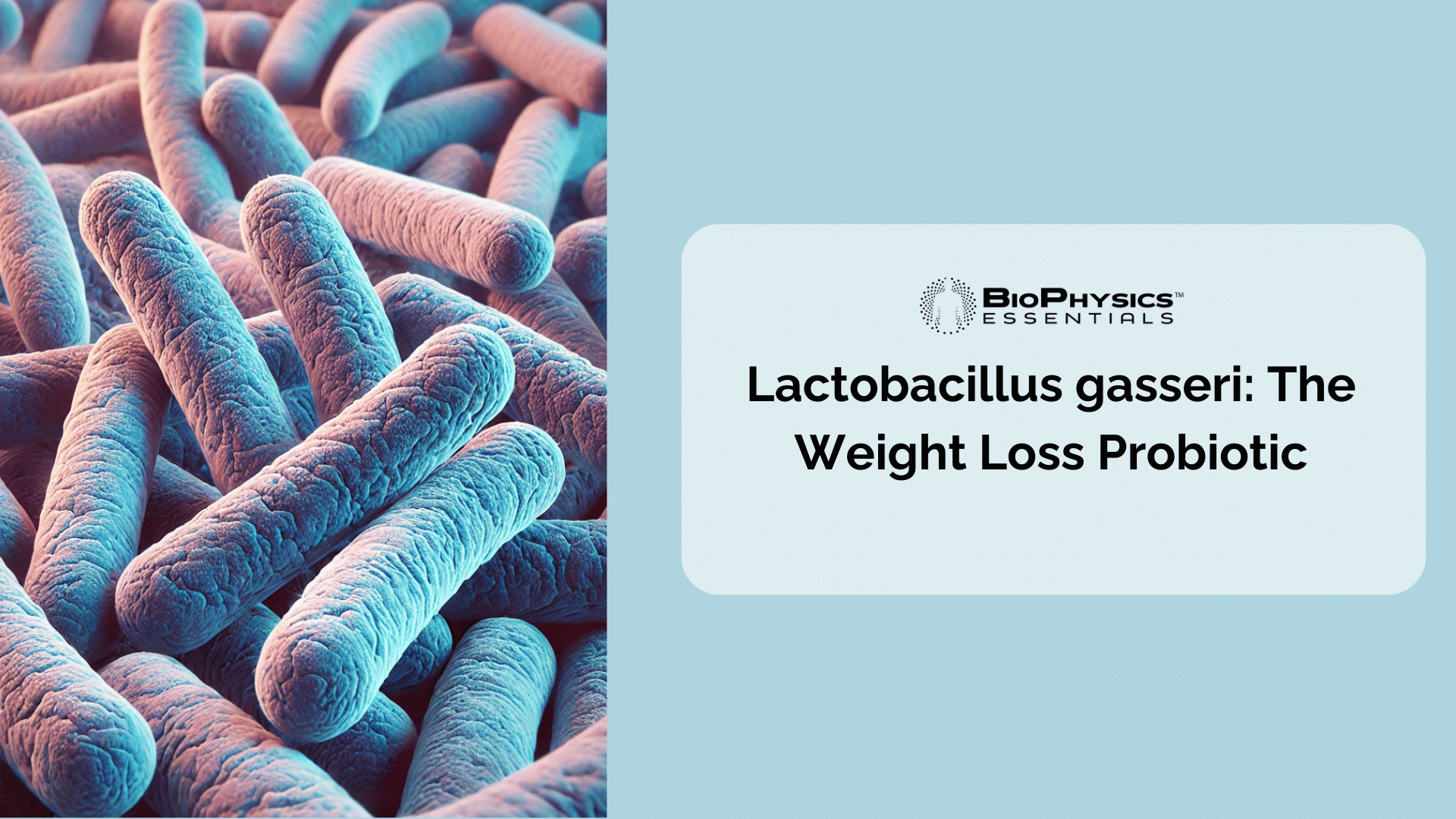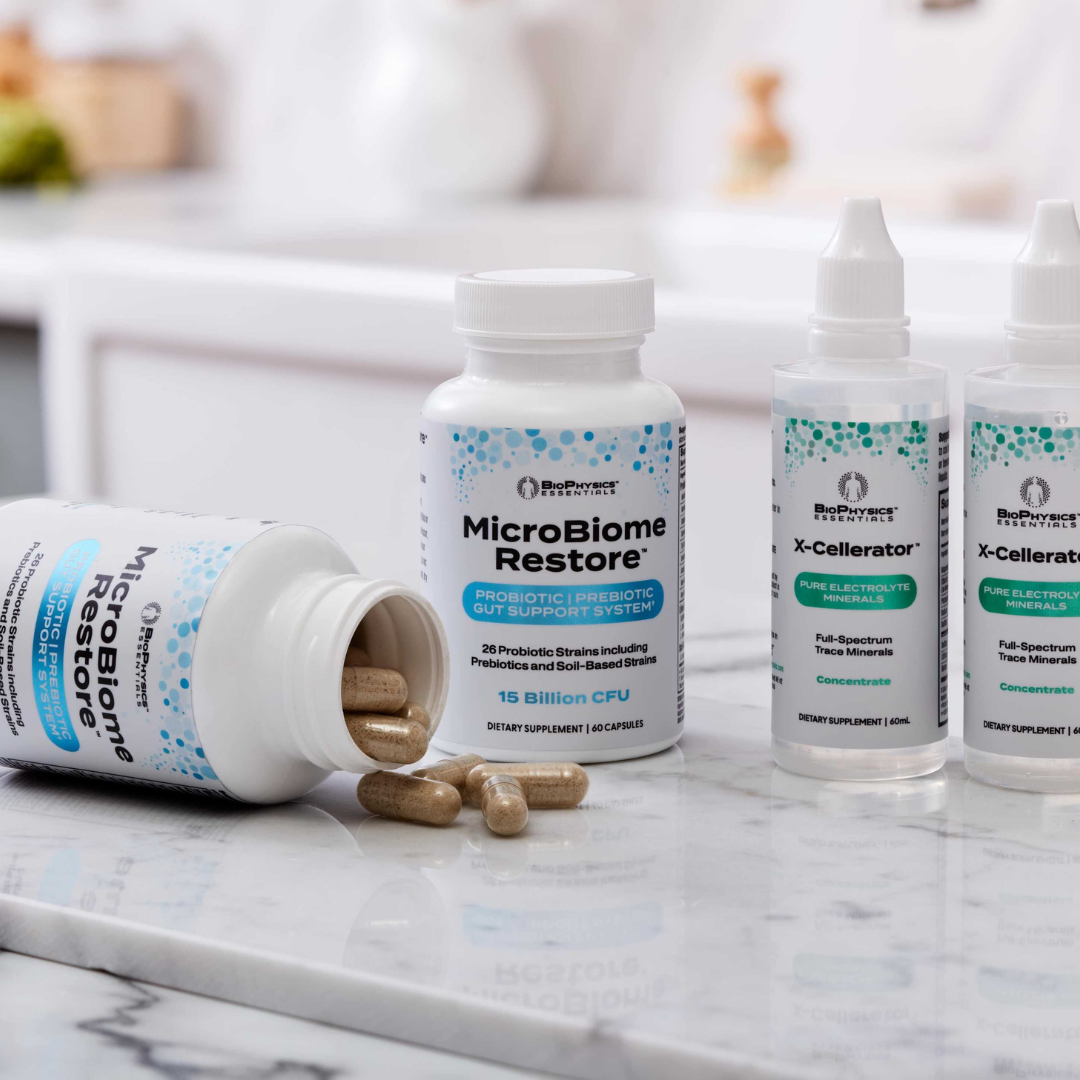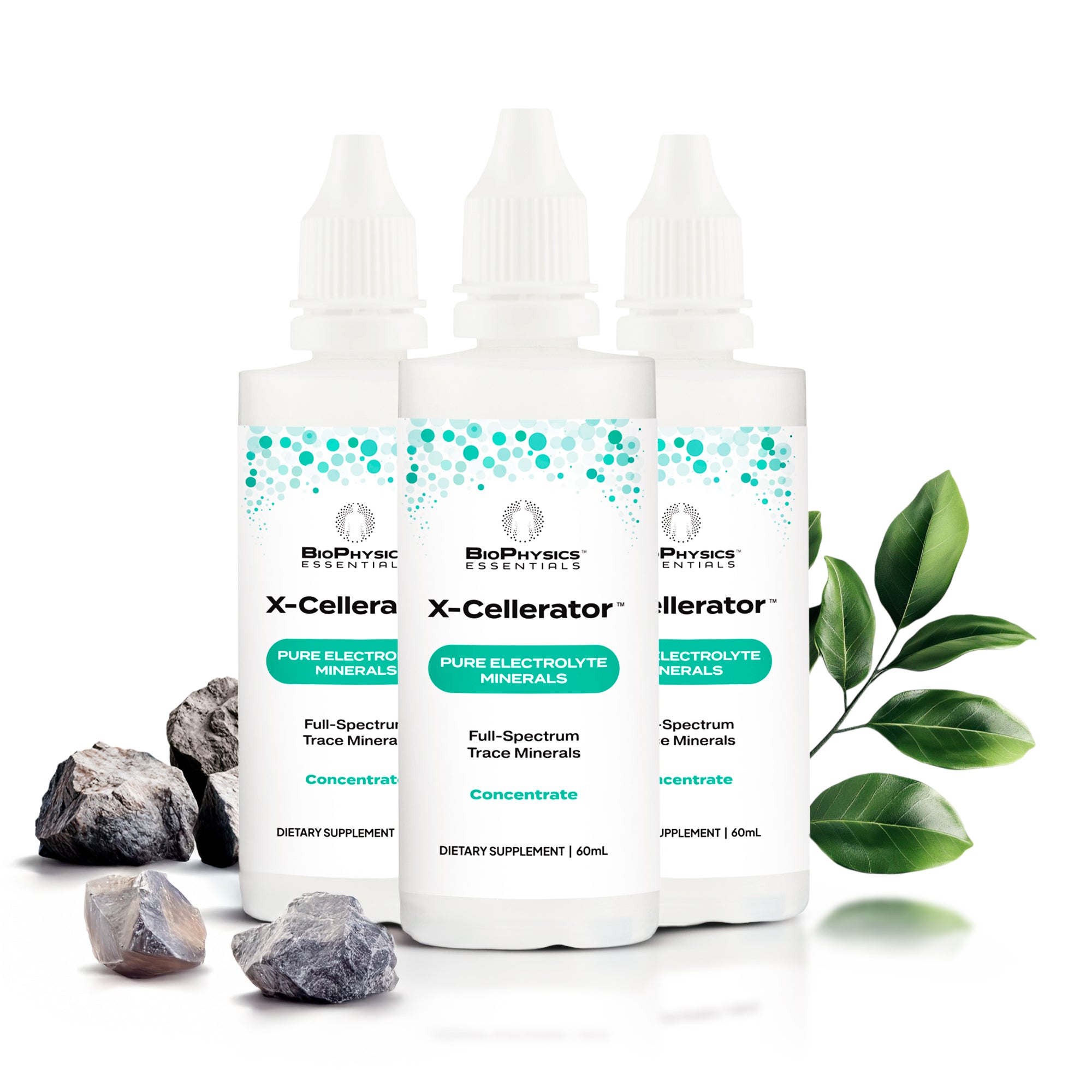Lactobacillus Gasseri for Weight Loss: Science-Backed Benefits and How It Works
Probiotics can be good for your health, and one type called Lactobacillus gasseri might help with losing weight. Let's learn about how this tiny microorganism could help you get healthier and maybe lose some extra pounds.
Key Points
- Lactobacillus gasseri is a probiotic bacteria that may help with weight loss
- Studies show it can reduce belly fat and body weight in adults
- It works by changing gut bacteria composition and how your body handles fat
- Results show modest but consistent benefits for managing weight
- More research is needed to understand long-term effectiveness
What is Lactobacillus Gasseri?
Lactobacillus gasseri is a friendly bacteria that naturally lives in our digestive system. It's part of a large family of beneficial bacteria that help keep our bodies healthy. [1] What's special about L. gasseri is that it might help with weight management and how our bodies function metabolically. Scientists have been studying it extensively to see how it affects body composition, fat storage, and overall gut health.
Understanding Gut Microbiota and Weight Management
The human gut contains trillions of microbial cells that play essential roles in metabolic regulation through symbiotic interactions with the host. [2] Research has shown that alterations in gut microbial ecosystems have been associated with increased metabolic and immune disorders in both animals and humans. The gut microbiota influences multiple aspects of health, including nutrient metabolism, immune system regulation, and natural defense against infection. [3]
When it comes to weight management, the composition of gut bacteria matters significantly. Studies have identified molecular interactions linking the gut microbiota with host energy metabolism, lipid accumulation, and immunity. [2] The balance between different bacterial species in your gut can influence how efficiently your body processes food, stores fat, and regulates appetite.
How Lactobacillus Gasseri May Aid Weight Loss
Scientists have identified several mechanisms through which L. gasseri could contribute to weight management:
Fat Absorption and Metabolism: L. gasseri may make it harder for your body to absorb dietary fat, which could mean fewer calories get stored. The probiotic can also influence fatty acid oxidation-related genes, helping your body burn fat more efficiently. [4]
Inflammation Reduction: Chronic low-grade inflammation is strongly linked to obesity and metabolic disorders. [5] L. gasseri has been shown to inhibit pro-inflammatory gene expression in visceral adipose tissue, which may help reduce the inflammatory state associated with excess body fat. [6]
Appetite Regulation: The probiotic might help control your appetite by affecting hormones like ghrelin and leptin that make you feel hungry or full. [7] Through the gut-brain axis, probiotics can influence neurotransmitter production and hormonal signaling that affects eating behavior.
Energy Metabolism: L. gasseri could help your body use energy more efficiently by modulating the expression of genes involved in lipid metabolism. Research shows it can upregulate fatty acid oxidation genes while downregulating fatty acid synthesis genes. [4]
Gut Microbiome Composition: By introducing beneficial bacteria and promoting microbial diversity, L. gasseri might change the overall mix of bacteria in your gut toward a composition that supports healthy weight management. [8]
Understanding Visceral Fat vs. Subcutaneous Fat
Not all body fat is created equal. Understanding the difference between visceral fat and subcutaneous fat is crucial when discussing weight loss benefits:
Visceral Fat: This is the deep abdominal fat that surrounds your internal organs, including your liver, intestines, and stomach. [9] Visceral fat is metabolically active and produces inflammatory proteins called cytokines, which can trigger chronic inflammation—a significant risk factor for heart disease, type 2 diabetes, and other metabolic disorders. [10] For most people, visceral fat makes up about 10% of total body fat, but having too much poses serious health risks.
Subcutaneous Fat: This is the fat located just beneath your skin that you can pinch. [11] It makes up about 90% of body fat in most individuals and serves protective functions, including cushioning organs and regulating body temperature. While subcutaneous fat is generally less harmful than visceral fat, excess amounts can still indicate elevated visceral fat levels.
Research shows that visceral adipose tissue is more strongly associated with adverse cardiometabolic risk factors than subcutaneous fat, making it a primary target for weight loss interventions. [12] What makes L. gasseri particularly promising is its specific effect on reducing visceral fat accumulation.
Scientific Evidence Supporting Lactobacillus Gasseri for Weight Loss
Multiple clinical studies have investigated L. gasseri's effects on body composition and weight:
The SBT2055 Strain Study: One landmark study found that adults who consumed fermented milk containing Lactobacillus gasseri SBT2055 for 12 weeks experienced significant reductions in abdominal visceral and subcutaneous fat areas—4.6% and 3.3% respectively. [13] Participants also showed decreases in body weight (1.4%), BMI (1.5%), and waist and hip circumferences. Remarkably, these benefits occurred without participants making any behavioral or dietary modifications.
The BNR17 Strain Research: Another randomized, double-blind, placebo-controlled trial examined the effects of Lactobacillus gasseri BNR17 in overweight and obese adults. [14] The study involved 90 volunteers who received either a placebo or different doses of BNR17 for 12 weeks. Results showed that visceral adipose tissue was significantly decreased in the high-dose group compared with the placebo group, along with reductions in waist circumference.
Follow-up Studies: A more recent investigation confirmed that L. gasseri supplementation helped improve body composition and reduced markers of inflammation in overweight individuals. [15] The study also demonstrated that the probiotic's anti-obesity effects were accompanied by inhibition of pro-inflammatory gene expression in visceral adipose tissue.
These results are encouraging, though researchers emphasize that we need more long-term studies to fully understand L. gasseri's effectiveness for sustained weight management. [16] The studies conducted so far show small but consistent benefits, which suggests L. gasseri could be helpful as part of a comprehensive approach to weight management, particularly for individuals looking to reduce belly fat.
Probiotic Strains for Weight Loss
While Lactobacillus gasseri shows particular promise, it's worth noting that other probiotic strains have also been studied for their potential weight loss benefits:
Lactobacillus acidophilus: This well-studied probiotic strain has been found effective in reducing weight, fat mass, waist circumference, and BMI, especially when used as part of multi-strain formulations. [17]
Lactobacillus rhamnosus: Research indicates that L. rhamnosus may support weight loss, particularly in women. Clinical trials have shown significantly greater weight loss in women taking this strain compared to placebo groups. [18]
Bifidobacterium lactis: Several strains of B. lactis have demonstrated effectiveness in reducing body fat, particularly abdominal and visceral fat. Studies show it can lead to significant decreases in body mass index and waist circumference. [19]
Lactobacillus plantarum: This strain has been associated with reductions in BMI and body fat through regulation of lipid metabolism and increased energy expenditure. [20]
A systematic review found that specific strains belonging to the genera Lactobacillus and Bifidobacterium were the most commonly used and showed the best results in reducing body weight when taken for an average of 12 weeks. [21]
MicroBiome Restore™: Our Probiotic Formula with Lactobacillus Gasseri
At BioPhysics Essentials, we've developed MicroBiome Restore™, a comprehensive probiotic supplement that contains Lactobacillus gasseri alongside 25 other beneficial bacterial strains. This diverse formulation is designed to support both weight management and overall gut health.
Our formula takes a holistic approach to microbiome support. By combining L. gasseri with other well-researched probiotic strains, we aim to provide comprehensive support for your gut ecosystem. Research suggests that having multiple types of probiotics may enhance overall benefits and contribute to improved digestion, immune support, and metabolic function. [22]
How to Use Lactobacillus Gasseri Probiotics
When taking L. gasseri probiotics, consistency is key for achieving optimal results. Here are evidence-based tips for supplementation:
Follow Label Instructions: For MicroBiome Restore™, the typical recommendation is one to two capsules daily. Clinical studies on L. gasseri typically used doses ranging from 10⁹ to 10¹⁰ colony-forming units (CFU) per day. [14]
Maintain Daily Consistency: Take your probiotic at the same time each day to establish a routine. Most weight loss studies involved daily supplementation for at least 8-12 weeks before significant changes were observed. [21]
Timing Considerations: Some people prefer taking probiotics with food, while others find an empty stomach works better. Experiment to see what your body responds to best. Taking probiotics with food may help protect them from stomach acid.
Be Patient: It may take several weeks to notice changes in your weight, body composition, or overall health. Most clinical studies showed measurable results after 8-12 weeks of consistent use.
Track Your Progress: Consider keeping a journal to monitor changes in your weight, digestion, energy levels, and how you feel overall as you begin taking L. gasseri.
Remember, our MicroBiome Restore™ comes in convenient capsules, making it simple to incorporate into your daily routine, even during busy schedules.
Combining Probiotics with a Holistic Approach to Weight Loss
While L. gasseri shows promise for weight management, it's important to understand that probiotics are not a magic solution. For optimal results, probiotic supplementation should be combined with other evidence-based healthy lifestyle practices:
Balanced Nutrition: Eat a diet rich in fruits, vegetables, whole grains, and lean proteins. These foods provide dietary fiber that serves as fuel for your beneficial gut bacteria. [23]
Regular Exercise: Aim for at least 150 minutes of moderate-intensity exercise or 75 minutes of vigorous exercise each week, as recommended by health authorities. Include both aerobic activities and strength training.
Quality Sleep: Get adequate sleep and implement stress management techniques. Stress and poor sleep can activate cortisol, which signals your body to hold onto excess fat.
Comprehensive Gut Support: Consider our Gut Essentials Protocol for complete digestive support that addresses multiple aspects of gastrointestinal health.
Hydration: Drink plenty of water throughout the day to support metabolic processes and overall health.
Mindful Eating: Practice paying attention to hunger cues, eating slowly, and savoring your meals to promote better digestion and prevent overeating.
Safety and Potential Side Effects
Lactobacillus gasseri is generally recognized as safe for most people when used appropriately. However, it's important to be aware of potential considerations:
Common Initial Effects: Some people may experience mild bloating or gas when first starting probiotics. These symptoms typically subside as your body adjusts to the new bacterial strains, usually within a few days to a couple of weeks.
Immune Considerations: If you have a compromised immune system or a serious underlying health condition, consult with your healthcare provider before taking any probiotic supplements. In rare cases, probiotics could pose risks for immunocompromised individuals.
Pregnancy and Breastfeeding: Pregnant or breastfeeding women should check with their doctor before starting any new supplement regimen, including probiotics.
Medication Interactions: If you're taking medications, especially antibiotics, discuss probiotic supplementation with your doctor. Antibiotics can reduce probiotic effectiveness, so timing of administration matters.
Rare Adverse Effects: In very rare cases, individuals might experience more serious side effects. If you notice anything unusual or concerning after starting L. gasseri or any probiotic, discontinue use and consult a healthcare professional.
Clinical trials investigating L. gasseri have generally reported excellent safety profiles with minimal adverse effects. [13],[14]
Other Health Benefits of Lactobacillus Gasseri
Beyond weight management, L. gasseri has been associated with several other potential health benefits:
Digestive Health: L. gasseri may help support regular bowel movements and overall digestive comfort. The probiotic can help maintain intestinal homeostasis and barrier function. [24]
Immune System Support: Research suggests that L. gasseri might help modulate immune responses and support the body's natural defense mechanisms. The gut microbiota plays a crucial role in immune system development and function. [3]
Metabolic Health: Some studies indicate that L. gasseri may help support healthy blood glucose levels and improve insulin sensitivity. [25]
Inflammatory Balance: The anti-inflammatory properties of L. gasseri extend beyond adipose tissue, potentially benefiting overall inflammatory balance in the body. [6]
Vaginal Health: As a Lactobacillus species, L. gasseri is naturally found in the vaginal microbiome and may support women's intimate health.
Our probiotic collection is designed to support various aspects of health, with L. gasseri being just one of many beneficial bacteria we include in our formulations.
Complementary Products for Gut Health and Weight Management
To maximize the benefits of probiotic supplementation, consider using them alongside other supportive supplements. Our X-Cellerator™ Full Spectrum Trace Minerals can work synergistically with probiotics to support overall health and potentially enhance weight management efforts.
Trace minerals are essential for numerous bodily functions, including metabolism and nutrient absorption. These minerals serve as cofactors for enzymes involved in energy production, fat metabolism, and other processes that complement the metabolic effects of probiotics.
The Future of Probiotic Research and Weight Loss
The field of probiotic research continues to evolve rapidly, with scientists exploring exciting new frontiers:
Strain Interactions: Researchers are investigating how different probiotic strains work together synergistically to enhance health benefits. Multi-strain formulations may offer advantages over single-strain products. [8]
Personalized Probiotic Therapies: Scientists are working toward developing individualized probiotic treatments based on each person's unique gut microbiome composition. This precision approach could optimize therapeutic outcomes.
Advanced Delivery Methods: New technologies are being developed to improve probiotic supplement efficacy, including specialized coatings that protect beneficial bacteria from stomach acid and ensure they reach the intestines viable.
Long-term Weight Management: Ongoing research is examining how probiotics like L. gasseri can contribute to sustainable weight loss and metabolic health over extended periods.
Broader Health Applications: Scientists are exploring how probiotics might benefit various health conditions beyond digestion, including mental health, skin conditions, and autoimmune disorders.
Metabolite Research: Future studies will likely focus more on the metabolites produced by probiotic bacteria and how these compounds influence host health. [26]
Conclusion: Lactobacillus Gasseri as Part of a Comprehensive Approach to Weight Loss
Lactobacillus gasseri represents a promising tool in the quest for healthy weight management and improved metabolic health. While more research is needed to fully understand its mechanisms and long-term effectiveness, the evidence accumulated thus far suggests that adding this probiotic to a balanced lifestyle may offer benefits that extend beyond simple weight reduction.
The research demonstrates that L. gasseri can specifically target visceral fat—the most metabolically harmful type of body fat—while also potentially reducing inflammation, improving gut microbiome composition, and supporting overall metabolic function. These effects, though modest in magnitude, are consistent across multiple clinical studies and occur even without dramatic lifestyle changes.
However, it's crucial to maintain realistic expectations. Sustainable, healthy weight loss is about more than just taking a supplement. It requires creating lasting healthy habits that support your overall well-being. Our MicroBiome Restore™ and other probiotic products are designed to be part of a comprehensive approach to health, supporting your body's natural processes and helping you feel your best.
As you work toward your health goals, consider how probiotics like L. gasseri might fit into your routine as one component of a multi-faceted strategy. Always consult with a healthcare provider before starting any new supplement, especially if you have existing health conditions or concerns. By combining the potential benefits of L. gasseri with a balanced diet, regular exercise, adequate sleep, stress management, and other healthy lifestyle choices, you can work toward your weight management goals while improving your overall health and well-being.
References
- Kadooka, Y., et al. (2010). "Regulation of abdominal adiposity by probiotics (Lactobacillus gasseri SBT2055) in adults with obese tendencies in a randomized controlled trial." European Journal of Clinical Nutrition, 64(6), 636-643. https://pubmed.ncbi.nlm.nih.gov/20216555/
- Cani, P. D., & Delzenne, N. M. (2016). "Impact of the gut microbiota on inflammation, obesity, and metabolic disease." Genome Medicine, 8(1), 42. https://genomemedicine.biomedcentral.com/articles/10.1186/s13073-016-0303-2
- Aslam, H., et al. (2020). "The Gut Microbiota and Inflammation: An Overview." International Journal of Environmental Research and Public Health, 17(20), 7618. https://pmc.ncbi.nlm.nih.gov/articles/PMC7589951/
- Kang, J. H., et al. (2013). "Anti-obesity effect of Lactobacillus gasseri BNR17 in high-sucrose diet-induced obese mice." PLoS One, 8(1), e54617. https://pubmed.ncbi.nlm.nih.gov/23382926/
- Bawazeer, A. M., et al. (2023). "Immunological mechanisms of inflammatory diseases caused by gut microbiota dysbiosis: A review." Biomedicine & Pharmacotherapy, 164, 114986. https://www.sciencedirect.com/science/article/pii/S0753332223007758
- Miyoshi, M., et al. (2014). "Anti-obesity effect of Lactobacillus gasseri SBT2055 accompanied by inhibition of pro-inflammatory gene expression in the visceral adipose tissue in diet-induced obese mice." European Journal of Nutrition, 53(2), 599-606. https://pubmed.ncbi.nlm.nih.gov/23917447/
- Santos, T. R., et al. (2025). "The Role of Probiotics in Modulating Gut Microbiota and Metabolic Health for Weight Management: A Mini Review." Metabolites, 15(1), 5. https://www.mdpi.com/2813-9054/70/1/5
- Wang, Y., et al. (2013). "Effects of probiotics on gut microbiota: mechanisms of intestinal immunomodulation and neuromodulation." Therapeutic Advances in Gastroenterology, 6(1), 39-51. https://pmc.ncbi.nlm.nih.gov/articles/PMC3539293/
- Cleveland Clinic. (2023). "Visceral Fat: What It Is & How It Affects You." https://my.clevelandclinic.org/health/diseases/24147-visceral-fat
- Harvard Health Publishing. (2024). "Taking Aim at Belly Fat." https://www.health.harvard.edu/newsletter_article/taking-aim-at-belly-fat
- Cleveland Clinic. (2025). "Subcutaneous Fat: What You Need to Know About the Fat Beneath Your Skin." https://my.clevelandclinic.org/health/diseases/23968-subcutaneous-fat
- Fox, C. S., et al. (2007). "Abdominal Visceral and Subcutaneous Adipose Tissue Compartments." Circulation, 116(1), 39-48. https://www.ahajournals.org/doi/10.1161/circulationaha.106.675355
- Kadooka, Y., et al. (2013). "Effect of Lactobacillus gasseri SBT2055 in fermented milk on abdominal adiposity in adults in a randomised controlled trial." British Journal of Nutrition, 110(9), 1696-1703. https://pubmed.ncbi.nlm.nih.gov/23614897/
- Kim, J., et al. (2018). "Lactobacillus gasseri BNR17 Supplementation Reduces the Visceral Fat Accumulation and Waist Circumference in Obese Adults: A Randomized, Double-Blind, Placebo-Controlled Trial." Journal of Medicinal Food, 21(5), 454-461. https://pubmed.ncbi.nlm.nih.gov/29688793/
- Jung, S. P., et al. (2013). "Effect of Lactobacillus gasseri BNR17 on Overweight and Obese Adults: A Randomized, Double-Blind Clinical Trial." Korean Journal of Family Medicine, 34(2), 80-89. https://pubmed.ncbi.nlm.nih.gov/23560206/
- International Journal of Medical Reviews. (2019). "Lactobacillus gasseri as a Functional Food and Its Role in Weight Management." International Journal of Medical Reviews, 6(2), 59-64. https://www.ijmedrev.com/article_89357.html
- Crovesy, L., et al. (2017). "Effect of Lactobacillus on body weight and body fat in overweight subjects: a systematic review of randomized controlled clinical trials." International Journal of Obesity, 41(11), 1607-1614. https://pubmed.ncbi.nlm.nih.gov/28792488/
- Sanchez, M., et al. (2014). "Effect of Lactobacillus rhamnosus CGMCC1.3724 supplementation on weight loss and maintenance in obese men and women." British Journal of Nutrition, 111(8), 1507-1519.
- Ogawa, A., et al. (2016). "Effect of Bifidobacterium animalis ssp. lactis GCL2505 on visceral fat accumulation in healthy Japanese adults: a randomized controlled trial." Bioscience of Microbiota, Food and Health, 35(4), 163-171. https://pmc.ncbi.nlm.nih.gov/articles/PMC5107634/
- Martín, R., et al. (2013). "The effect of Lactobacillus plantarum on body weight and fat mass in overweight subjects." Journal of Applied Microbiology, 115(3), 1-12.
- Álvarez-Arraño, V., & Martín-Peláez, S. (2021). "Effects of Probiotics and Synbiotics on Weight Loss in Subjects with Overweight or Obesity: A Systematic Review." Nutrients, 13(10), 3627. https://pmc.ncbi.nlm.nih.gov/articles/PMC8540110/
- Stenman, L. K., et al. (2020). "A randomised controlled study shows supplementation of overweight and obese adults with lactobacilli and bifidobacteria reduces bodyweight and improves well-being." Scientific Reports, 10(1), 4183. https://www.nature.com/articles/s41598-020-60991-7
- Myhrstad, M. C. W., et al. (2020). "The gut microbiome: linking dietary fiber to inflammatory diseases." Best Practice & Research Clinical Gastroenterology, 44-45, 101752. https://www.sciencedirect.com/science/article/pii/S2590097822000209
- Chen, L., et al. (2023). "Targeting gut microbiota and metabolism as the major probiotic mechanism - An evidence-based review." Trends in Food Science & Technology, 138, 178-198. https://www.sciencedirect.com/science/article/pii/S0924224423001851
- Yun, S. I., Park, H. O., & Kang, J. H. (2009). "Effect of Lactobacillus gasseri BNR17 on blood glucose levels and body weight in a mouse model of type 2 diabetes." Journal of Applied Microbiology, 107(5), 1681-1686.
- Mendes, M., et al. (2023). "Role of gut microbiota in infectious and inflammatory diseases." Frontiers in Microbiology, 14, 1098386. https://www.frontiersin.org/journals/microbiology/articles/10.3389/fmicb.2023.1098386/full









Share and get 15% off!
Simply share this product on one of the following social networks and you will unlock 15% off!